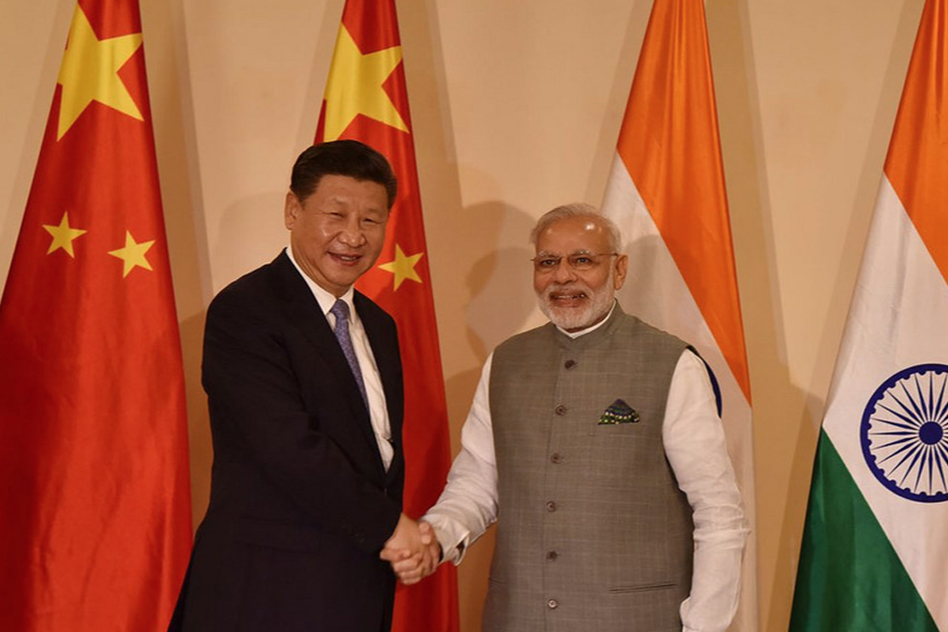
From License To Bank Of China To Taiwan's Name Change By Air India: What Changed B/W India & China?
13 July 2018 12:30 PM GMT
We have had a tumultuous relationship with China ever since the Chinese waged war on us in 1962. The relations have thawed, improved, and again soured, almost trepidatiously, over the past 50 years. Sometimes it is the influx of cheap goods which threaten the livelihoods of Indian manufacturers, other times it’s more overt, like the Doklam issue. China’s plans to make bases in the Indian Ocean and a corridor through Pakistan have been viewed with increasing suspicion by a lot of people, including the Indian government. Recently, as China battles Trump’s USA over trade and tariff issues, two updates shed some light on the evolving relationship between India & China.
One, RBI has given in-principle approval to the Bank of China to operate in India. After Industrial and Commercial Bank of China (ICBC), Bank of China would be the second Chinese-state-run bank that will operate on Indian soil.
Reserve Bank of India issues licence to Bank of China to operate in India.This was a commitment made by PM Modi to Chinese leadership: Sources
— ANI (@ANI) July 4, 2018
Second, Air India changed the name of ‘Taiwan’ to ‘Çhinese Taipei.’ This was heatedly objected to by the Taiwanese government and many veterans of Indian politics who saw this as a meek acceptance of China’s diktat of ‘One China Policy’ by India.
Deeply disappointed with Air India changing “Taiwan” into “Chinese Taipei” on its website.Regret this move by Air India, a state-owned airline, can be seen as gesture of succumbing to unreasonable and absurd pressure from China:Taipei Economic and Cultural Center in India (TECC)
— ANI (@ANI) July 5, 2018
Does the Indian government trust China?
Bank of China is one of China’s four biggest state-run banks. Reportedly, PM Modi’s last month meet with Chinese President Xi Jinping paved the way for this move.
ICBC, the world’s largest bank in terms of assets, is the only other Chinese bank operating in India. As reported by Indian Express, Ministry of Home Affairs has raised concerns regarding ICBC’s proposal to open a second branch in India citing visa circumvention issues by Chinese staffers in the ICBC’s Mumbai branch.
Chinese money is increasingly entering Indian markets and as per reports, Reliance Power and Reliance Communication were among the first companies to get Chinese funding.
In 2013, when Narendra Modi was in opposition, he vehemently attacked the then-UPA government for its soft stance on China.
From China's intrusions to Pakistan's ambushes- UPA Government has been absolutely lax in securing Indian borders. When will Centre wake up?
— Narendra Modi (@narendramodi) August 6, 2013
After just two years, in 2015, PM Modi posted “Hello China! Looking forward to interacting with Chinese friends through Weibo,” on the Chinese social media platform.
The Doklam issue has not yet faded from people’s minds but here PM Modi has no qualms about allowing China to run banks in India.
Moreover, the way Air India changed ‘Taiwan’ to ‘Çhinese Taipei’ has been viewed by many as a sign of submission to China and linked to the same Xi Jinping meeting which paved the way for Bank of China.

Who is dictating our Foreign Policy?
Foreign policy in India has always been closely associated with the PMO than the external affairs ministry. This legacy from PM Nehru’s time is still practised today. Hence, when India’s national carrier, Air India, changed the name of Taiwan, reportedly under duress from Chinese officials, people saw this as India kowtowing to China.
As reported by Hindustan Times, the Chinese government ‘approved’ of this move. “Air India is respecting the basic fact that there is one China and Taiwan is part of China. We approve of that.”
However, Air India and the Indian government still maintain that this is just to align with international practices and has no bearing on foreign policy.
The underlying issue is China’s ‘One China Policy’ which basically does not recognise Taiwan as a separate country, rather views it as a province of China.
India’s official stance has been against this policy for quite some time now and we have had cordial relations with Taiwan since 2002. This relationship is now soured.
Also, just last week, our long and cordial relationship with Iran was threatened after the Trump administration pressured us into decreasing our fuel imports from Iran.
The Logical Indian Take
The Indian people would sure like to know what is the Indian government’s stance on China. Do we view China as an ally or as a threat? Even though foreign relations are pragmatic in practice, the citizens should also have some say in increasing closeness with someone whose influence and the influx of ‘cheap products’ is viewed with mistrust.
However, can this century be Asia’s century without India and China coming together?
Or, is this a part of India’s three-pronged approach? A strategy which was laid out by MEA just last week and which reportedly comprises – track Beijing’s activities carefully; pursue its own projects and commitments; and educate and advise neighbours on the consequences of engaging with China.
The perennial question of what lies ahead, stares the Indian citizens in the face, as 2019 elections come closer with every passing day.
 All section
All section













